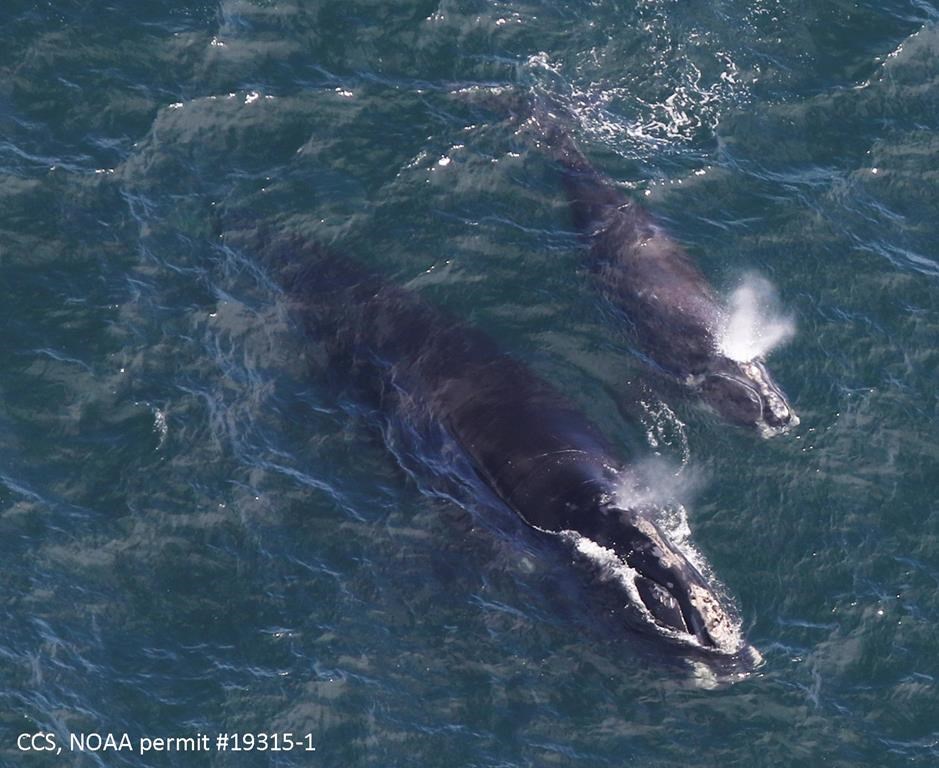A new report by Oceana Canada says keeping voluntary speed restrictions for vessels passing through the Cabot Strait poses an ongoing risk to the endangered North Atlantic right whales who share the waters.

The organization says an analysis of vessel tracking data indicates that two-thirds of 1,565 ship transits studied in 2020, ignored the voluntary 10 knot slowdown measure that was put in place by Transport Canada to protect the whales against deadly strikes.
READ MORE: Canadian government modifies North Atlantic right whale protection measures for 2021
Tracking of vessels longer than 13 metres that was conducted last spring and fall also found that more than 40 per cent of those transits exceeded 12 knots, increasing the risk to the whales.
Kim Elmslie, campaign director for Oceana Canada, says the data indicates voluntary slowdowns aren’t working and the federal government should put in place a mandatory season-long slowdown in the Cabot Strait.

Last week, Ottawa announced the same voluntary 10-knot limit will remain in place for boats travelling through the strait from April 28 to June 29 and again from September 29 to November 15 to protect right whales migrating in and out of the Gulf of St. Lawrence.
There were no North Atlantic right whale deaths or entanglements in fishing gear recorded in Canadian waters in 2020, but the previous five years saw 25 deaths recorded for a species with an estimated world population of just 366.
- Enter at your own risk: New home security camera aims paintballs at intruders
- High benzene levels detected near Ontario First Nation for weeks, residents report sickness
- Beijing orders Apple to pull WhatsApp, Threads from its China app store
- Boston Dynamics unveils ‘creepy’ new fully electric humanoid robot



Comments